History
The off-off-Broadway movement began in 1958 as a "complete rejection of commercial theatre". Michael Smith gives credit for the term's coinage to Jerry Tallmer in 1960. [4] Among the first venues for what would soon be called "off-off-Broadway" theatre were coffeehouses in Greenwich Village, particularly the Caffe Cino at 31 Cornelia Street, operated by the eccentric Joe Cino, who early on took a liking to actors and playwrights and agreed to let them stage plays there without bothering to read the plays first, or to even find out much about the content. This DIY aesthetic also led to creative acts of object repurposing by playwrights and directors, who cobbled together sets from materials scavenged from local streets. Also integral to the rise of off-off-Broadway were Ellen Stewart at La MaMa, and Al Carmines at Judson Poets Theatre, located at Judson Memorial Church. Other theaters of note that presented many plays were Theatre Genesis, New York Theatre Ensemble, [6] The Old Reliable, [7] The Dove Company, The Playwrights Workshop, [8] and Workshop of the Players Art. [9]
At its coalescence, off-off-Broadway was known for its experimental nature. Brooks McNamara wrote that over time, off-off-Broadway work lost some of its experimental spirit, instead beginning to imitate the "characteristics of off-Broadway, which had gradually moved toward reshaping itself in the image of Broadway, though often producing works that were unsuitable for commercial theatre." [2]
An off-off-Broadway production that features members of the Actors' Equity Association may be an Equity Showcase production intended to allow actors to be seen by potential future employers. Equity maintains union rules about working in such productions, including restrictions on price of tickets, the length of the run, and rehearsal times. [10] Professional actors' participation in showcase productions is frequent and comprises the bulk of stage work for the majority of New York actors. There has been an ongoing movement to revise the Equity Showcase Code, which many in the community find overly restrictive and detrimental to the creation of New York theatre. [11]
In 1964, off-off-Broadway productions were made eligible for Obie Awards, and in 1974, the Drama Desk Awards began evaluating such productions with the same criteria as it used for Broadway and off-Broadway productions. [12] Since 2005, the New York Innovative Theatre Awards (NYIT Awards or IT Awards) have annually honored individuals and organizations that have achieved artistic excellence in off-off-Broadway theatre. [13]
The term indie theatre, or independent theatre, was suggested as an alternative for "off-off Broadway" by playwright Kirk Bromley during a speech at the 2005 New York Innovative Theatre Awards. [14]
Lanford Wilson was an American playwright. His work, as described by The New York Times, was "earthy, realist, greatly admired [and] widely performed." Wilson helped to advance the Off-Off-Broadway theater movement with his earliest plays, which were first produced at the Caffe Cino beginning in 1964. He was one of the first playwrights to move from Off-Off-Broadway to Off-Broadway, then Broadway and beyond.

An off-Broadway theatre is any professional theatre venue in New York City with a seating capacity between 100 and 499, inclusive. These theatres are smaller than Broadway theatres, but larger than off-off-Broadway theatres, which seat fewer than 100.
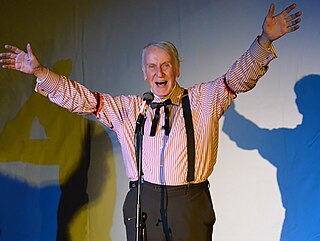
Robert Patrick was an American playwright, poet, lyricist, short story writer, and novelist.
Balm in Gilead is a 1965 American play written by American playwright Lanford Wilson.
Reverend Alvin Allison "Al" Carmines Jr. was a key figure in the expansion of off-off-Broadway theatre in the 1960s.
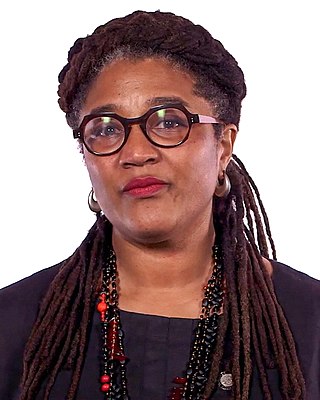
Lynn Nottage is an American playwright whose work often focuses on the experience of working-class people, particularly working-class people who are Black. She has received the Pulitzer Prize for Drama twice: in 2009 for her play Ruined, and in 2017 for her play Sweat. She was the first woman to have won the Pulitzer Prize for Drama two times.
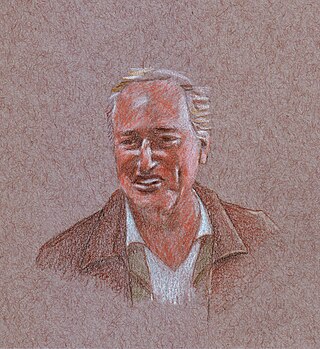
Marshall W. Mason is an American theater director, educator, and writer. Mason founded the Circle Repertory Company in New York City and was artistic director of the company for 18 years (1969–1987). He received an Obie Award for Sustained Achievement in 1983. In 2016, he received the Tony Award for Lifetime Achievement in the Theater.
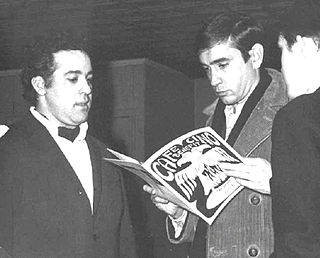
Joseph Cino, was an Italian-American theatre producer. The Off-Off-Broadway theatre movement is generally credited to have begun at Cino's Caffe Cino in the West Village of Manhattan.
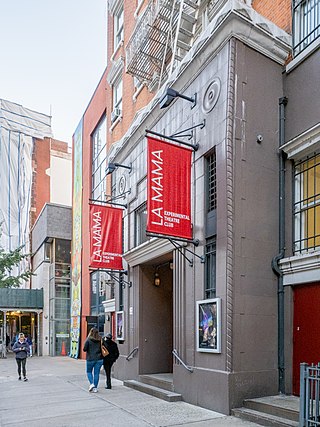
La MaMa Experimental Theatre Club is an Off-Off-Broadway theater founded in 1961 by African-American theatre director, producer, and fashion designer Ellen Stewart. Located in the East Village neighborhood of Manhattan in New York City, the theater began in the basement boutique where Stewart sold her fashion designs. Stewart turned the space into a theater at night, focusing on the work of young playwrights.

Jean Isabel Smith, credited professionally as J. Smith-Cameron, is an American actress. She gained prominence for her roles in the television series Rectify (2013–2016) and Succession (2018–2023), the latter of which earned her two Primetime Emmy Award nominations.
The Lucille Lortel Awards recognize excellence in New York Off-Broadway theatre. The Awards are named for Lucille Lortel, an actress and theater producer, and have been awarded since 1986. They are produced by the League of Off-Broadway Theatres and Producers by special arrangement with the Lucille Lortel Foundation, with additional support from the Theatre Development Fund.
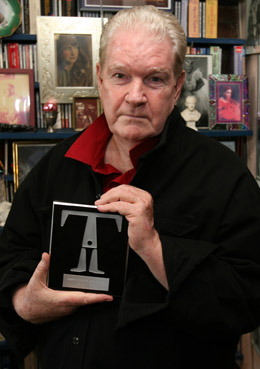
Doric Wilson was an American playwright, director, producer, critic and gay rights activist.

Peter Friedman is an American stage, film, and television actor. He made his Broadway debut in the Eugene O'Neill play The Great God Brown in 1972. His other Broadway credits include roles in The Rules of the Game (1974), Piaf (1981), The Heidi Chronicles (1989), and Twelve Angry Men (2004). He earned a Tony Award for Best Actor in a Musical nomination for his role as Tateh in Ragtime (1998).
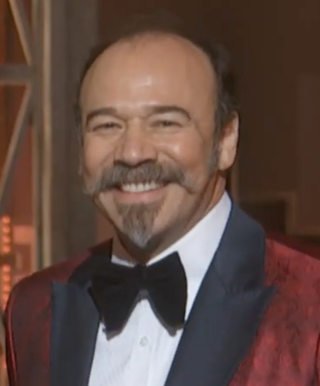
Danny Burstein is an American actor and singer. Known for his work on the Broadway stage, he's received numerous accolades including a Tony Award, two Drama Desk Awards and nominations for three Grammy Awards.
Theatre Genesis was an off-off-Broadway theater founded in 1964 by Ralph Cook. Located in the historic St. Mark's Church in-the-Bowery in the East Village of Manhattan, it produced the work of new American playwrights, including Lanford Wilson, Tony Barsha, Murray Mednick, Leonard Melfi, Walter Hadler, and Sam Shepard. Theatre Genesis is often credited as one of the original off-off-Broadway theaters, along with Joe Cino's Caffe Cino, Ellen Stewart's La MaMa Experimental Theatre Club, and Judson Poets Theatre.
The Madness of Lady Bright is a short play by Lanford Wilson, among the earliest of the gay theatre movement. The play was first performed at Joe Cino's Caffe Cino in May 1964.
Jessica Ruth Mueller is an American actress and singer. She started her acting career in Chicago and won two Joseph Jefferson Awards in 2008 and 2011 for her roles as Carrie Pipperidge in Carousel and Amalia Balash in She Loves Me. In 2011, she moved to New York City to star in a Broadway revival of musical On a Clear Day You Can See Forever, for which she was nominated for a Tony Award for Best Featured Actress in a Musical. She won the 2014 Tony Award for Best Actress in a Leading Role in a Musical for her performance as Carole King in Beautiful: The Carole King Musical. She went on to receive two additional Best Actress in a Musical Tony Award nominations for her leading roles in Waitress (2016) and the Broadway revival of Carousel (2018).
Stephen Karam is an American playwright, screenwriter and director. His plays Sons of the Prophet, a comedy-drama about a Lebanese-American family, and The Humans were finalists for the Pulitzer Prize for Drama in 2012 and 2016, respectively. The Humans won the 2016 Tony Award for Best Play, and Karam wrote and directed a film adaptation of the play, released in 2021.
The Humans is a one-act play written by Stephen Karam. The play opened on Broadway in 2016 after an engagement Off-Broadway in 2015. The Humans was a finalist for the 2016 Pulitzer Prize for Drama and won the 2016 Tony Award for Best Play.
The New York Independent Theater Awards are accolades given annually by The League of Independent Theater to honor individuals and organizations who have achieved artistic excellence in Off-Off-Broadway theatre.










